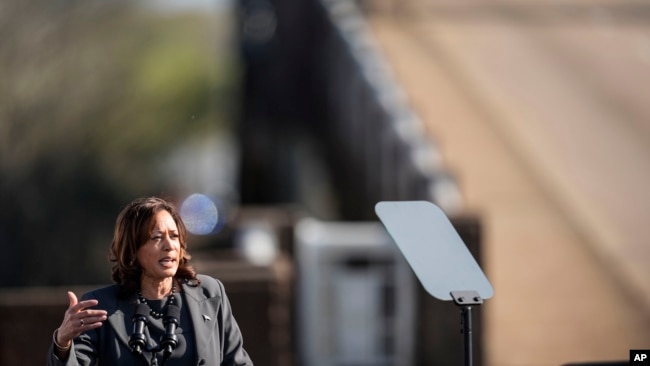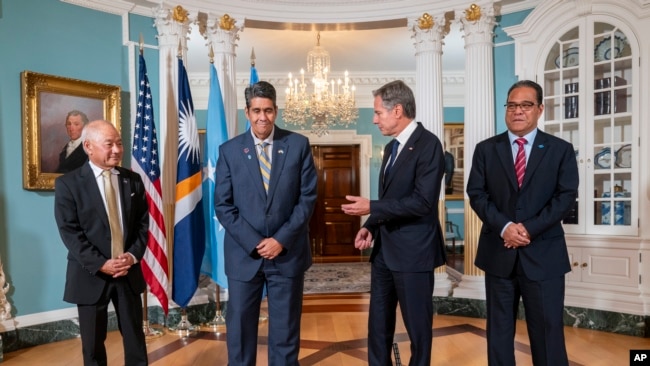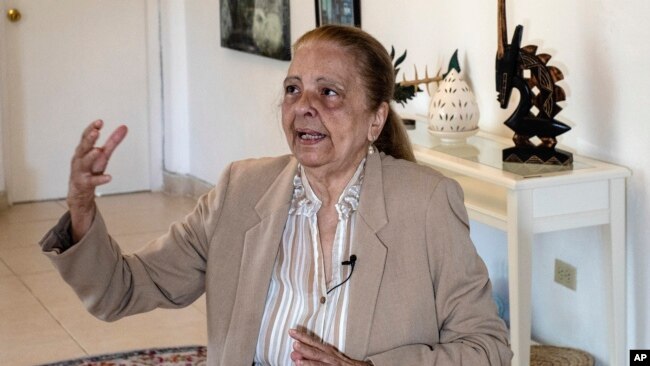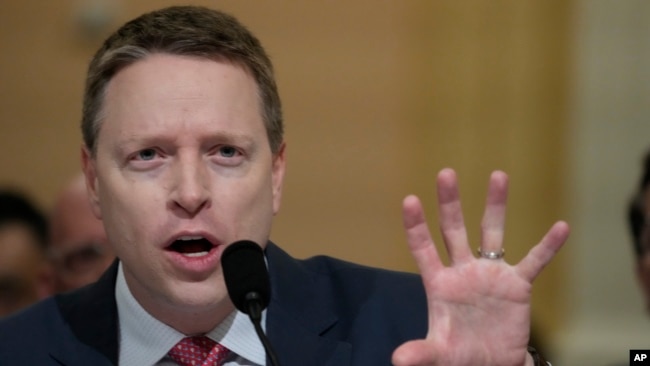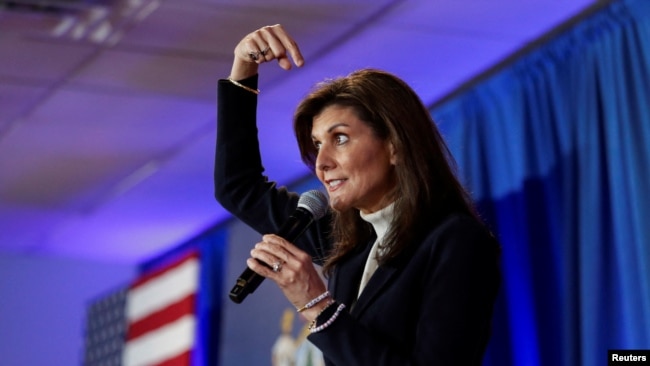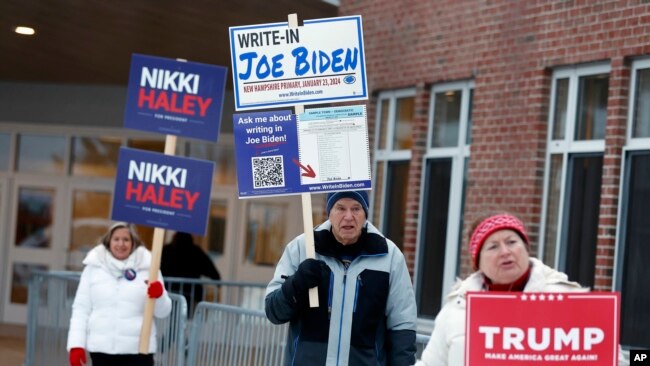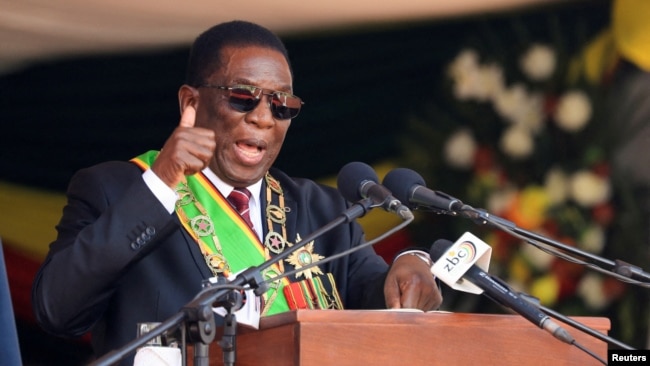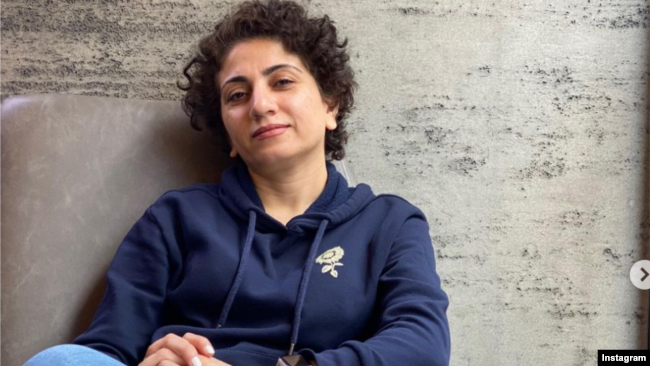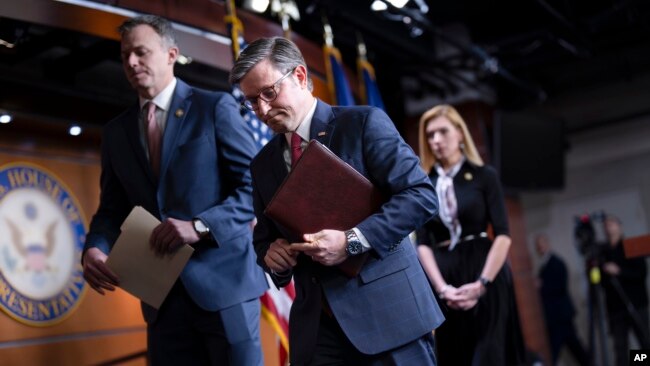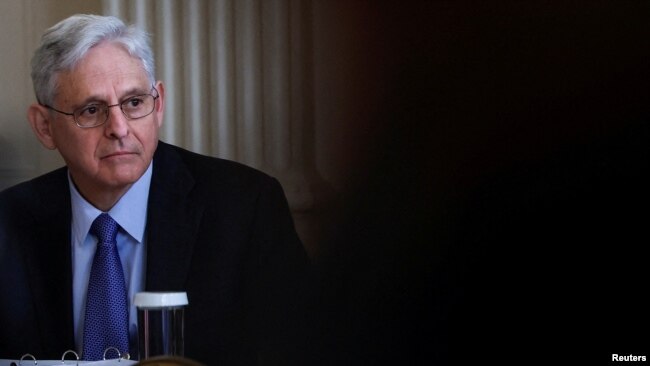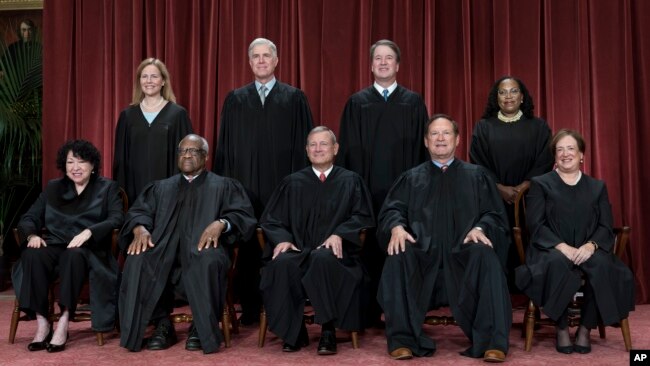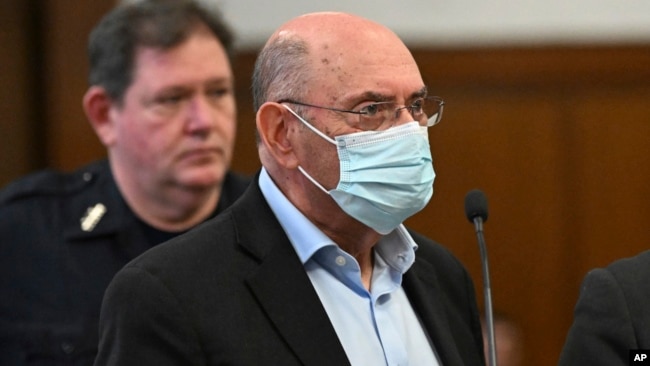미국인들이 잘못된 정보가 문제라는 데 동의하고 있습니다.
Americans Agree Misinformation Is a Problem, Poll Shows
페이지 정보
작성자 Associated Press 작성일 21-10-08 09:53 댓글 0본문
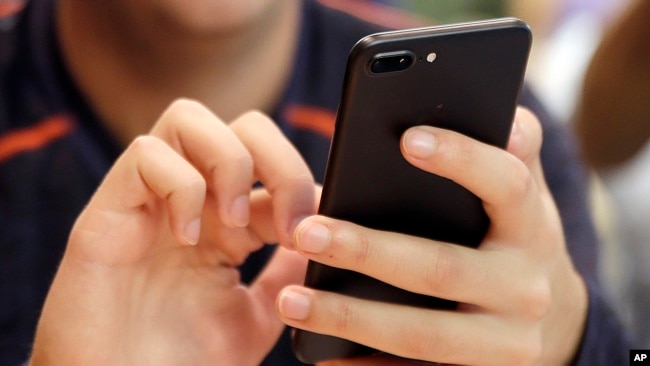
파일 - 9월 시카고에서 한 사람이 스마트폰을 사용합니다.
FILE - A person uses a smart phone in Chicago, Sept. 16, 2017.
거의 모든 미국인들이 잘못된 정보의 만연된 확산이 문제라는 데 동의합니다.
Nearly all Americans agree that the rampant spread of misinformation is a problem.
또한 대부분은 소셜 미디어 회사와 소셜 미디어를 사용하는 사람들이 이 상황에 대해 많은 비난을 받고 있다고 생각합니다. 그러나 피어슨 연구소와 AP통신-NORC 공공문제연구센터의 새로운 여론조사에 따르면, 그들 자신이 책임질지도 모른다고 우려하는 사람은 거의 없습니다.
Most also think social media companies, and the people that use them, bear a good deal of blame for the situation. But few are very concerned that they themselves might be responsible, according to a new poll from The Pearson Institute and the Associated Press-NORC Center for Public Affairs Research.
95미국인들의%가 중요한 정보를 액세스 하려는 것이 문제점으로 잘못된 정보를 확인했다.약 절반이 미국 정부에 소셜 미디어 사용자와 기술 회사에 약 3분의 1지점 책임을 기울였다그러나 오직 10명 중 2명 미국인들은 그들이 때는 그들은 개인적으로 잘못된 정보를 퍼지고 있다고 말한다.
Ninety-five percent of Americans identified misinformation as a problem when they're trying to access important information. About half put a great deal of blame on the U.S. government, and about three-quarters point to social media users and tech companies. Yet only 2 in 10 Americans say they're very concerned that they have personally spread misinformation.
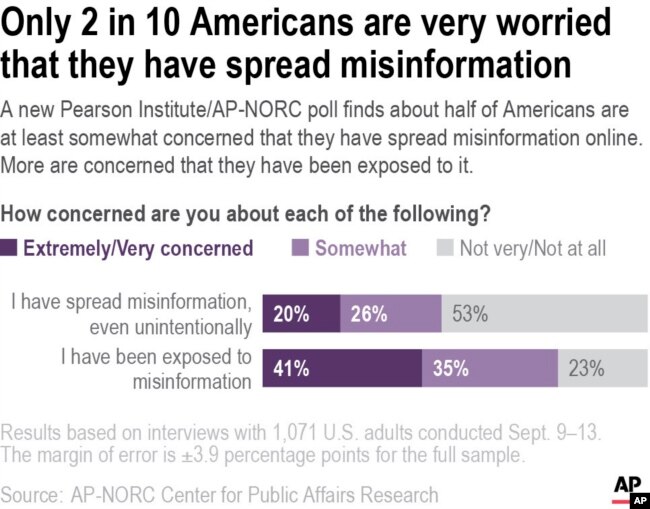
새로운 여론조사에 따르면 미국인의 절반 가량은 잘못된 정보를 온라인에 퍼뜨린 것에 대해 적어도 어느 정도 우려하고 있는 것으로 나타났습니다. 더 많은 사람들은 그들이 그것에 노출되었다고 걱정합니다.
A new poll finds about half of Americans are at least somewhat concerned that they have spread misinformation online. More are concerned that they have been exposed to it.
10명 중 약 6명은 적어도 친구나 가족이 문제의 일부라고 우려하고 있습니다.
More — about 6 in 10 — are at least somewhat concerned that their friends or family members have been part of the problem.
켄터키 렉싱턴에 사는 33세의 대학원생인 카르멘 스펠러는 가까운 가족들과 코로나 바이러스 대유행에 대해 토론할 때 이러한 분열이 명백합니다. Speller는 COVID-19 백신을 신뢰하지만 그녀의 가족은 신뢰하지 않습니다. 그녀는 가족들이 TV에서 보거나 의심스러운 뉴스 사이트에서 읽은 잘못된 정보가 COVID-19 예방 접종을 받지 않기로 한 결정을 흔들었다고 믿고 있습니다.
For Carmen Speller, a 33-year-old graduate student in Lexington, Kentucky, the divisions are evident when she's discussing the coronavirus pandemic with close family members. Speller trusts COVID-19 vaccines; her family does not. She believes the misinformation her family has seen on TV or read on questionable news sites has swayed them in their decision to stay unvaccinated against COVID-19.
사실, 그녀의 가족 중 일부는 그녀가 COVID-19에 대한 정보를 얻기 위해 정부를 신뢰하는 것에 미쳤다고 생각합니다.
In fact, some of her family members think she's crazy for trusting the government for information about COVID-19.
"제가 잘못 알고 있다고 믿는 것 같아요. 저는 정부가 말하는 것을 맹목적으로 따르는 사람입니다. 그것은 제가 많이 듣는 것입니다,"라고 Speller는 말했습니다. "이러다 보니 제 가족과 몇몇 친구들과도 많은 긴장감을 조성하게 되었습니다."
"I do feel like they believe I'm misinformed. I'm the one that's blindly following what the government is saying, that's something I hear a lot," Speller said. "It's come to the point where it does create a lot of tension with my family and some of my friends as well."
가족과 불화를 겪고 있는 사람은 스펠러뿐만이 아니다.
Speller isn't the only one who may be having those disagreements with her family.
조사에 따르면 공화당원의 61%가 미국 정부가 잘못된 정보를 퍼뜨릴 책임이 많다고 답한 데 비해 민주당원은 38%에 불과했습니다.
The survey found that 61% of Republicans say the U.S. government has a lot of responsibility for spreading misinformation, compared to just 38% of Democrats.
하지만 페이스북, 트위터, 유튜브를 포함한 소셜 미디어 회사들이 잘못된 정보의 확산에서 어떤 역할을 하는지에 대해서는 더 초당적인 합의가 이루어졌습니다.
There's more bipartisan agreement, however, about the role that social media companies, including Facebook, Twitter and YouTube, play in the spread of misinformation.
여론조사에 따르면, 공화당원의 79%와 민주당원의 73%가 소셜 미디어 회사가 잘못된 정보에 대해 큰 책임이 있거나 상당한 책임이 있다고 말했습니다.
According to the poll, 79% of Republicans and 73% of Democrats said social media companies have a great deal or quite a bit of responsibility for misinformation.
그리고 미국인들 사이의 드문 당파적 합의는 공화당과 민주당 의원들로부터 똑같이 비난을 받고 있는 소셜 미디어 플랫폼 중 가장 크고 가장 수익성이 높은 페이스북과 같은 거대 기술 회사들에게 문제를 일으킬 수 있습니다.
And that type of rare partisan agreement among Americans could spell trouble for tech giants like Facebook, the largest and most profitable of the social media platforms, which is under fire from Republican and Democrat lawmakers alike.
AP-NORC 여론조사는 페이스북에 나쁜 소식입니다," 라고 피어슨 연구소의 산하 시카고 대학의 공공정책학 교수인 콘스탄틴 소닌이 말했습니다. "페이스북을 공격하는 것은 의회가 50 대 50으로 분열되어 있고, 각 당이 나름대로의 이유가 있을 때 조차도 큰 폭으로 인기가 있다는 것은 분명합니다.“
"The AP-NORC poll is bad news for Facebook," said Konstantin Sonin, a professor of public policy at the University of Chicago who is affiliated with the Pearson Institute. "It makes clear that assaulting Facebook is popular by a large margin — even when Congress is split 50-50, and each side has its own reasons."
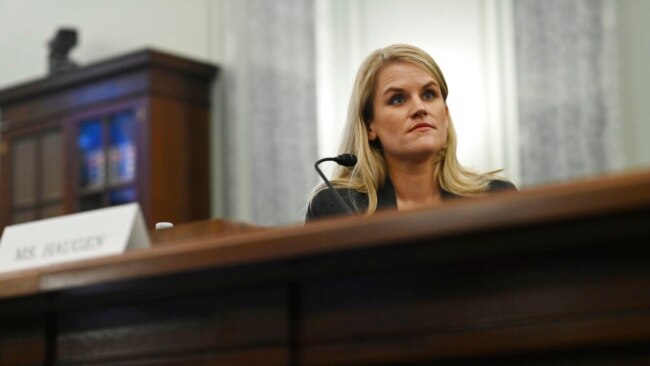
참조: 미국 국회의원들은 소셜 미디어 거대 페이스북을 조롱합니다.
SEE ALSO:
US Lawmakers Pillory Social Media Giant Facebook
화요일 의회 청문회에서 상원의원들은 페이스북의 알고리즘이 잘못된 정보와 어린이들에게 해를 끼치는 내용을 증폭시킨다는 내부고발자의 증언이 있은 후 새로운 규정으로 페이스북을 공격하겠다고 다짐했습니다.
During a congressional hearing Tuesday, senators vowed to hit Facebook with new regulations after a whistleblower testified that the company's own research shows its algorithms amplify misinformation and content that harms children.
"그것은 잘못된 정보와 잘못된 정보를 퍼뜨리고 증오를 뿌리는 것으로 이득을 취했습니다." 리처드 블루멘탈 D-Conn.은 상원 소비자보호소위원회 회의에서 이렇게 말했습니다. 민주당과 공화당원들은 페이스북의 콘텐츠 확대와 사용자 공략 방식을 바꾸기 위해서는 규제가 도입되어야 한다는 점을 인정하며 청문회를 끝냈습니다.
"It has profited off spreading misinformation and disinformation and sowing hate," Sen. Richard Blumenthal, D-Conn., said during a meeting of the Senate Commerce Subcommittee on Consumer Protection. Democrats and Republicans ended the hearing with acknowledgement that regulations must be introduced to change the way Facebook amplifies its content and targets users.
이 여론조사는 또한 미국인들이 잘못된 정보를 퍼뜨린 것에 대해 자신을 제외한 모든 사람들을 비난할 용의가 있다고 밝혔으며, 그들 중 53%는 잘못된 정보를 퍼뜨리는 것에 대해 염려하지 않는다고 말했습니다.
The poll also revealed that Americans are willing to blame just about everybody but themselves for spreading misinformation, with 53% of them saying they're not concerned that they've spread misinformation.
"우리는 사람들이 잘못된 정보에 대해 매우 걱정하지만 그들은 그것이 다른 사람들에게 일어나는 일이라고 생각합니다. 다른 사람들은 그것에 속고, 다른 사람들은 그것을 퍼뜨립니다,"라고 잘못된 주장이 어떻게 퍼지는지를 연구하는 밴더빌트 대학의 심리학 교수인 리사 파지오는 말했습니다. "대부분의 사람들은 자신의 역할을 인식하지 못합니다."
"We see this a lot of times where people are very worried about misinformation but they think it's something that happens to other people — other people get fooled by it, other people spread it," said Lisa Fazio, a Vanderbilt University psychology professor who studies how false claims spread. "Most people don't recognize their own role in it."
60세 이상의 성인 중 14%에 불과했던 것에 비해, 젊은 성인들은 18세에서 29세 사이의 25%가 거짓을 공유한 것에 대해 매우 또는 극도로 걱정하는 경향이 있습니다. 다른 미국인들의 절반에 비해, 63퍼센트의 노인들은 걱정을 하지 않습니다.
Younger adults tend to be more concerned that they've shared falsehoods, with 25% of those ages 18 to 29 very or extremely worried that they have spread misinformation, compared to just 14% of adults ages 60 and older. Sixty-three percent of older adults are not concerned, compared with roughly half of other Americans.
하지만 잘못된 정보를 퍼뜨리는 것에 대해 더 걱정해야 할 것은 노인들이 잘못된 뉴스 웹사이트의 기사를 공유할 가능성이 높다는 연구 결과를 볼 때라고 Fazio는 말했습니다.
Yet it's older adults who should be more worried about spreading misinformation, given that research shows they're more likely to share an article from a false news website, Fazio said.
가족이나 친구들과 페이스북에서 정보를 공유하기 전에, Speller는 COVID-19와 같은 중요한 주제에 대해 자신이 전달하고 있는 정보가 동료 검토되었거나 신뢰할 수 있는 의료 기관에서 나온 것인지 확인하기 위해 최선을 다합니다. 그럼에도 불구하고, Speller는 자신이 모든 사실을 제대로 이해하지 못한 게시물에서 "좋아요" 또는 "공유"를 친 적이 한두 번 있었음을 인정합니다.
Before she shares things with family or her friends on Facebook, Speller tries her best to make sure the information she's passing on about important topics like COVID-19 has been peer-reviewed or comes from a credible medical institution. Still, Speller acknowledges there has to have been a time or two that she "liked" or hit "share" on a post that didn't get all the facts quite right.
"분명히 그런 일이 있었습니다."라고 Speller는 말했습니다. 검증되지 않은 것들을 SNS에서 공유하지 않는 경향이 있어요. 만약 누군가가 '이건 옳지 않아'라고 지적한다면, 저는 이렇게 생각할 것입니다, "좋아, 내가 확인해 볼게."
"I'm sure it has happened," Speller said. "I tend to not share things on social media that I didn't find on verified sites. I'm open to that if someone were to point out, 'Hey this isn't right,' I would think, OK, let me check this."
AP-NORC가 성인 1,071명을 대상으로 실시한 이번 여론조사는 9월 9-13일 미국 인구 대표로 설계된 NORC의 확률 기반 AmeriSpeak Panel에서 추출한 표본을 사용하여 실시되었습니다. 모든 응답자의 표본 오차 범위는 플러스 마이너스 3.9% 포인트입니다.
The AP-NORC poll of 1,071 adults was conducted Sept. 9-13 using a sample drawn from NORC's probability-based AmeriSpeak Panel, which is designed to be representative of the U.S. population. The margin of sampling error for all respondents is plus or minus 3.9 percentage points.
출처 : VOANews
댓글목록 0
등록된 댓글이 없습니다.


